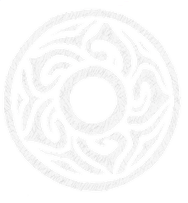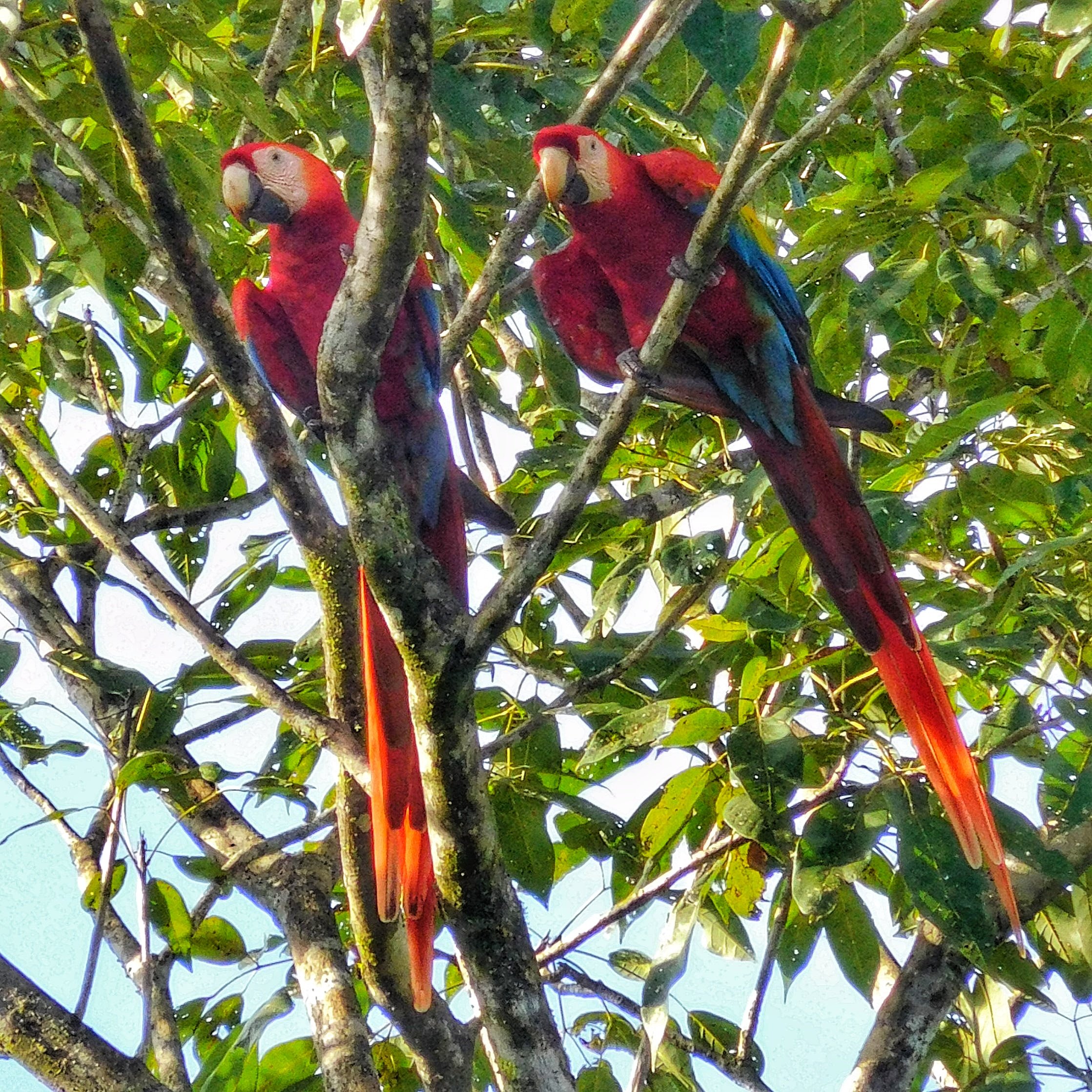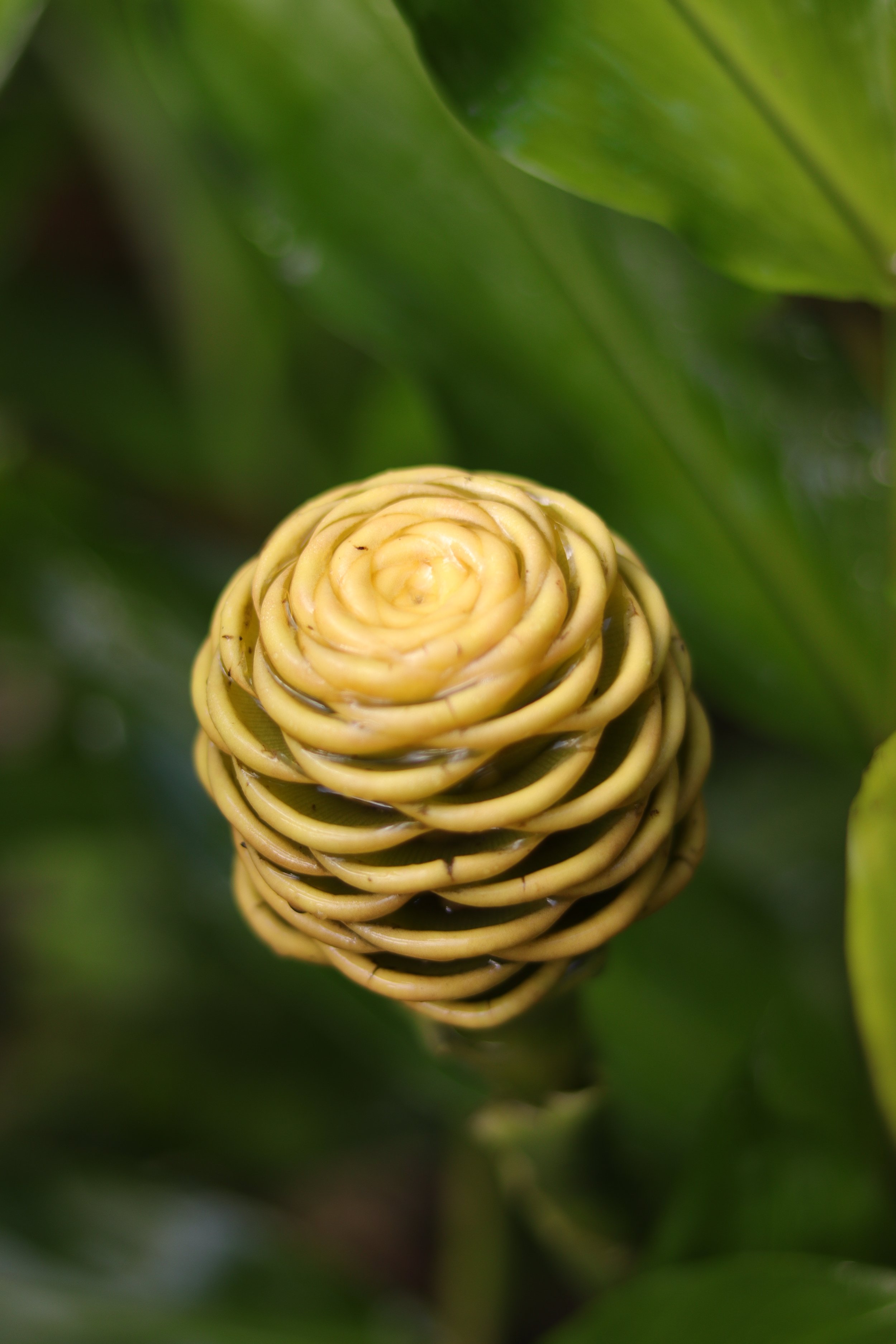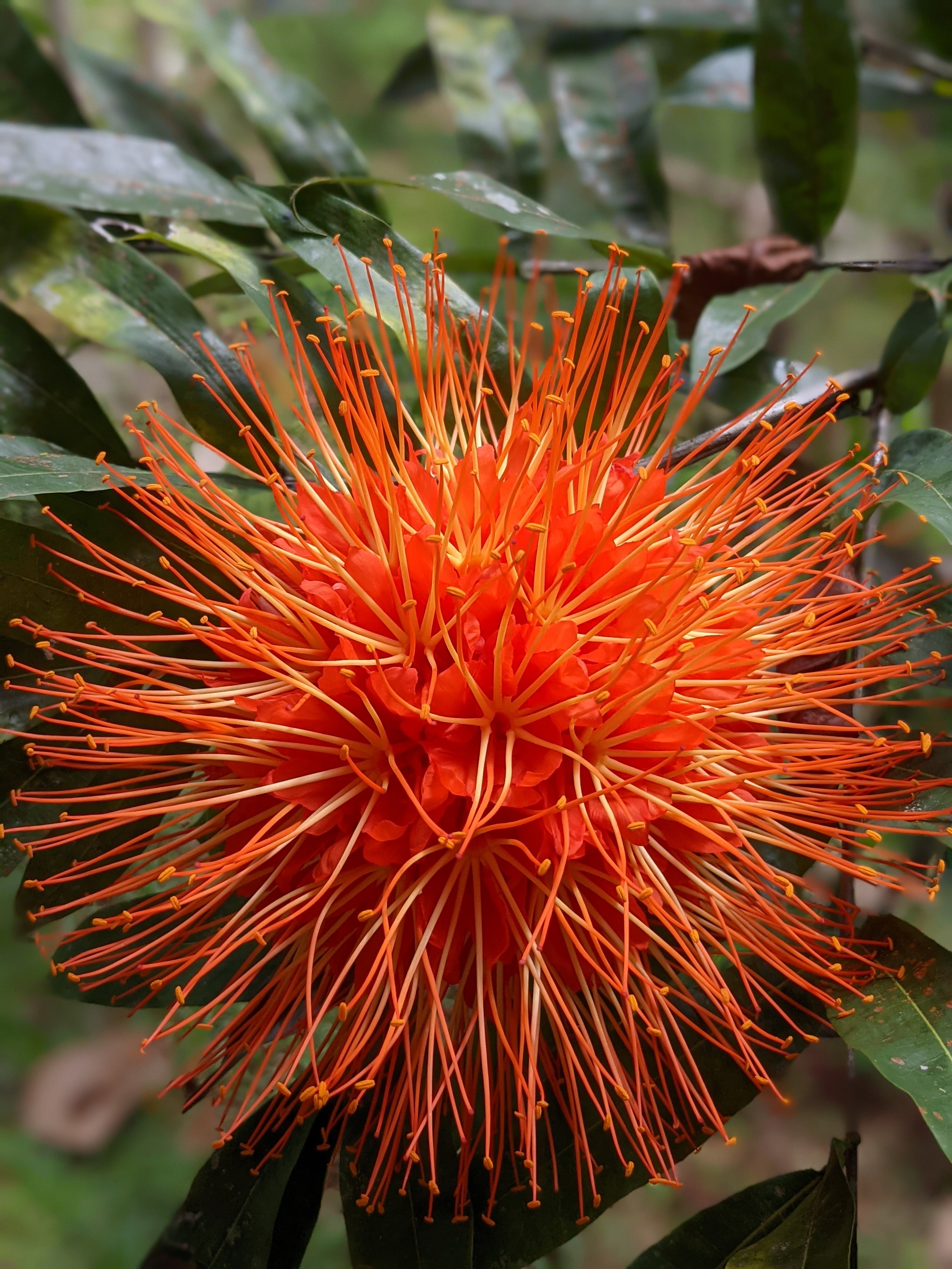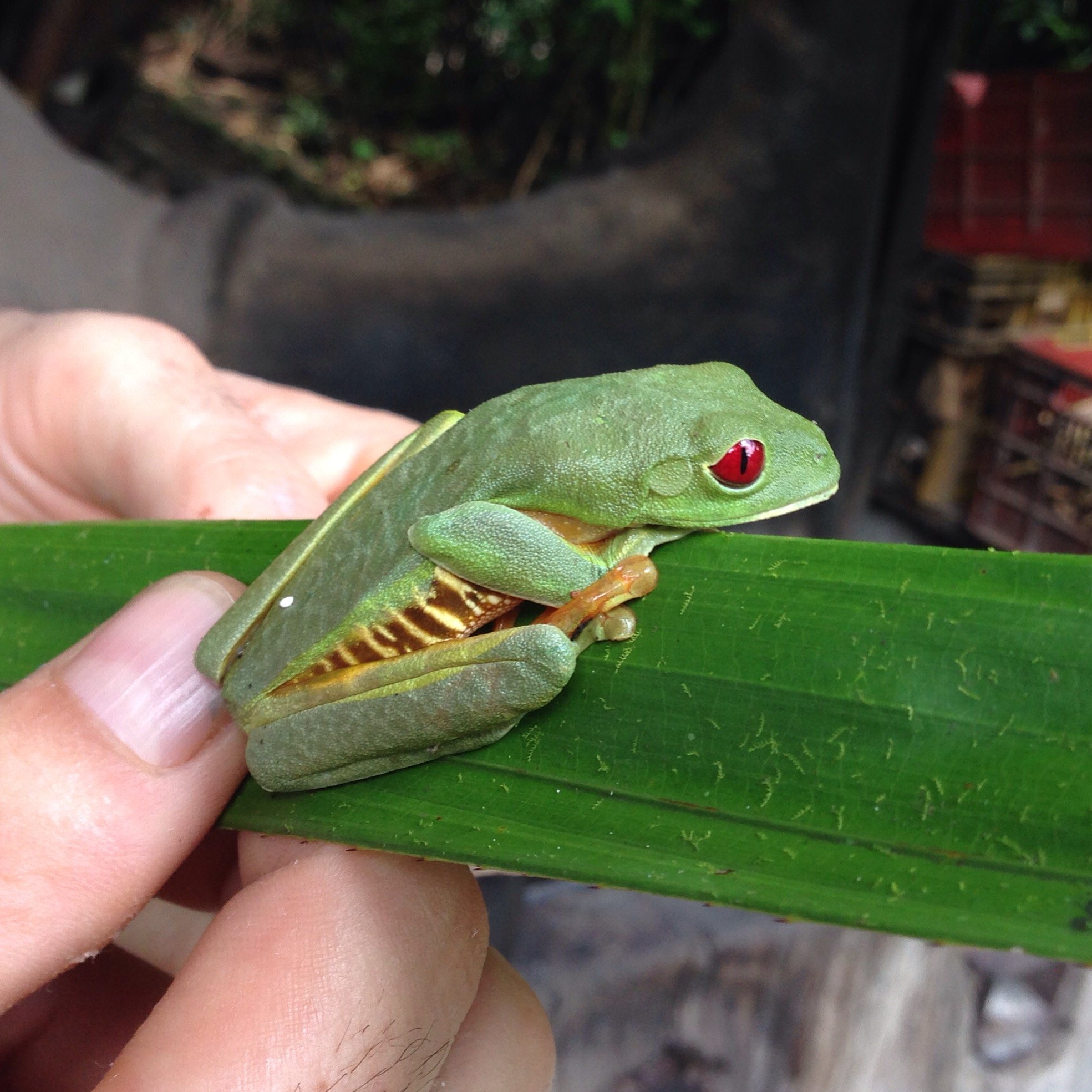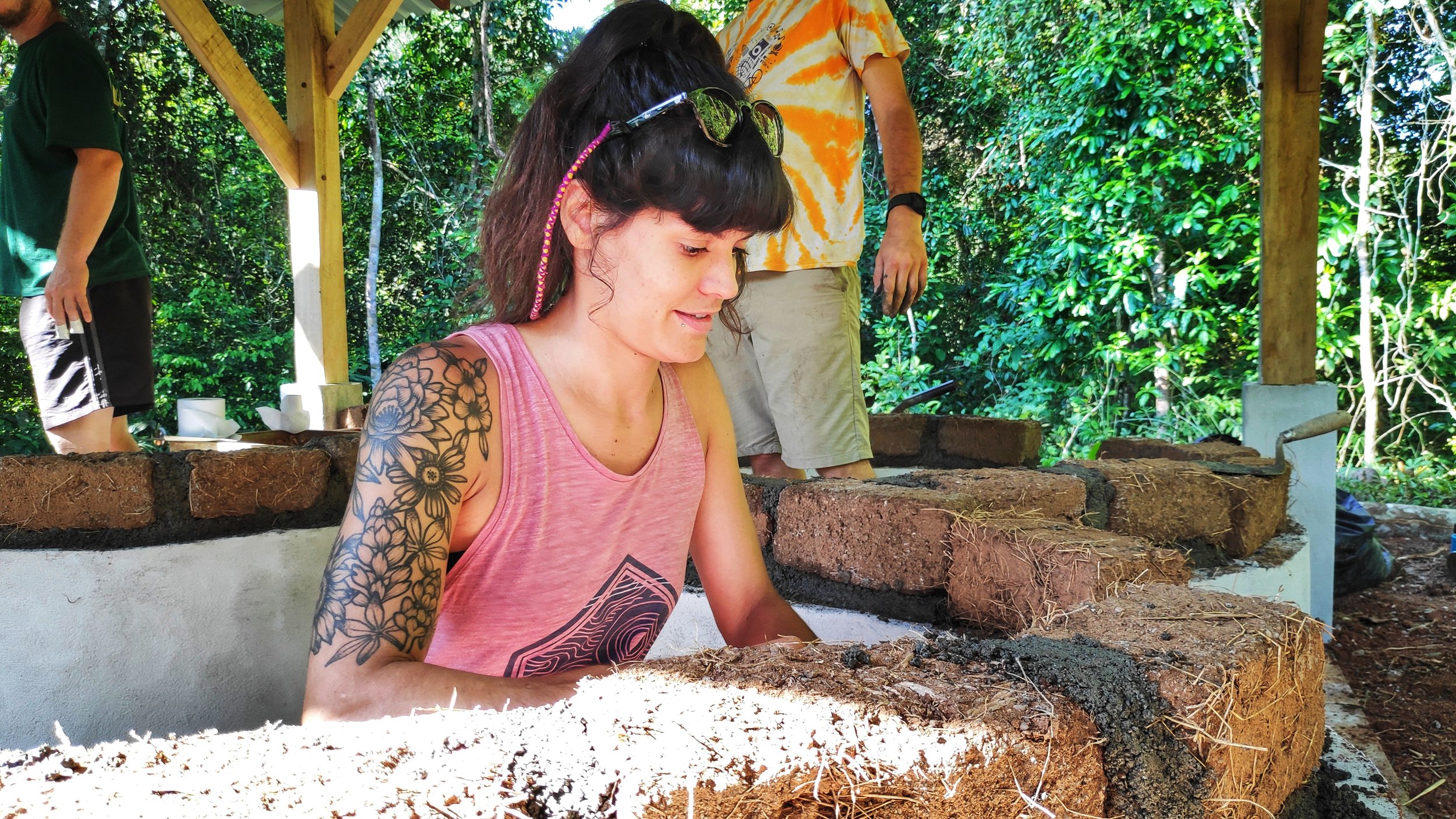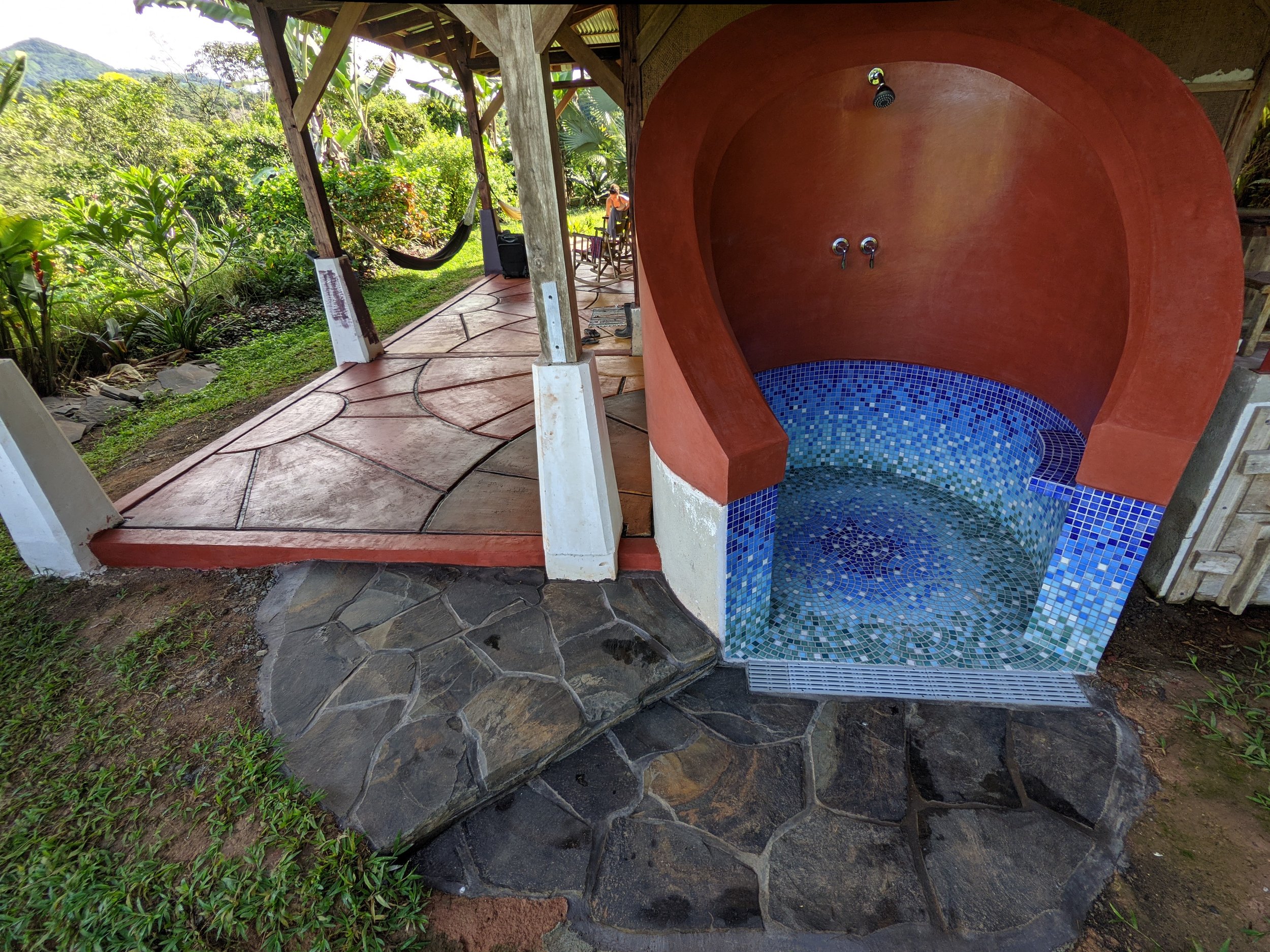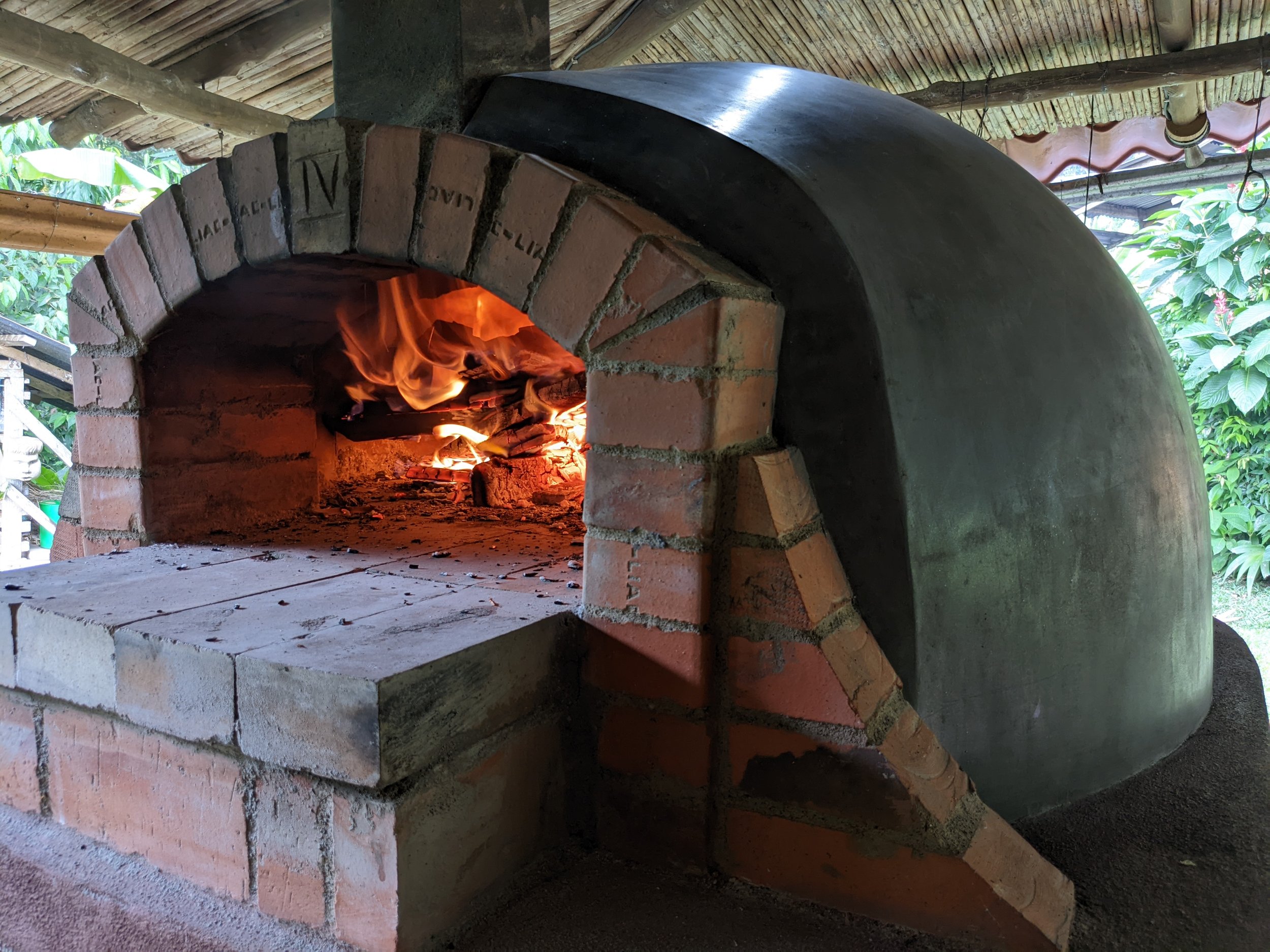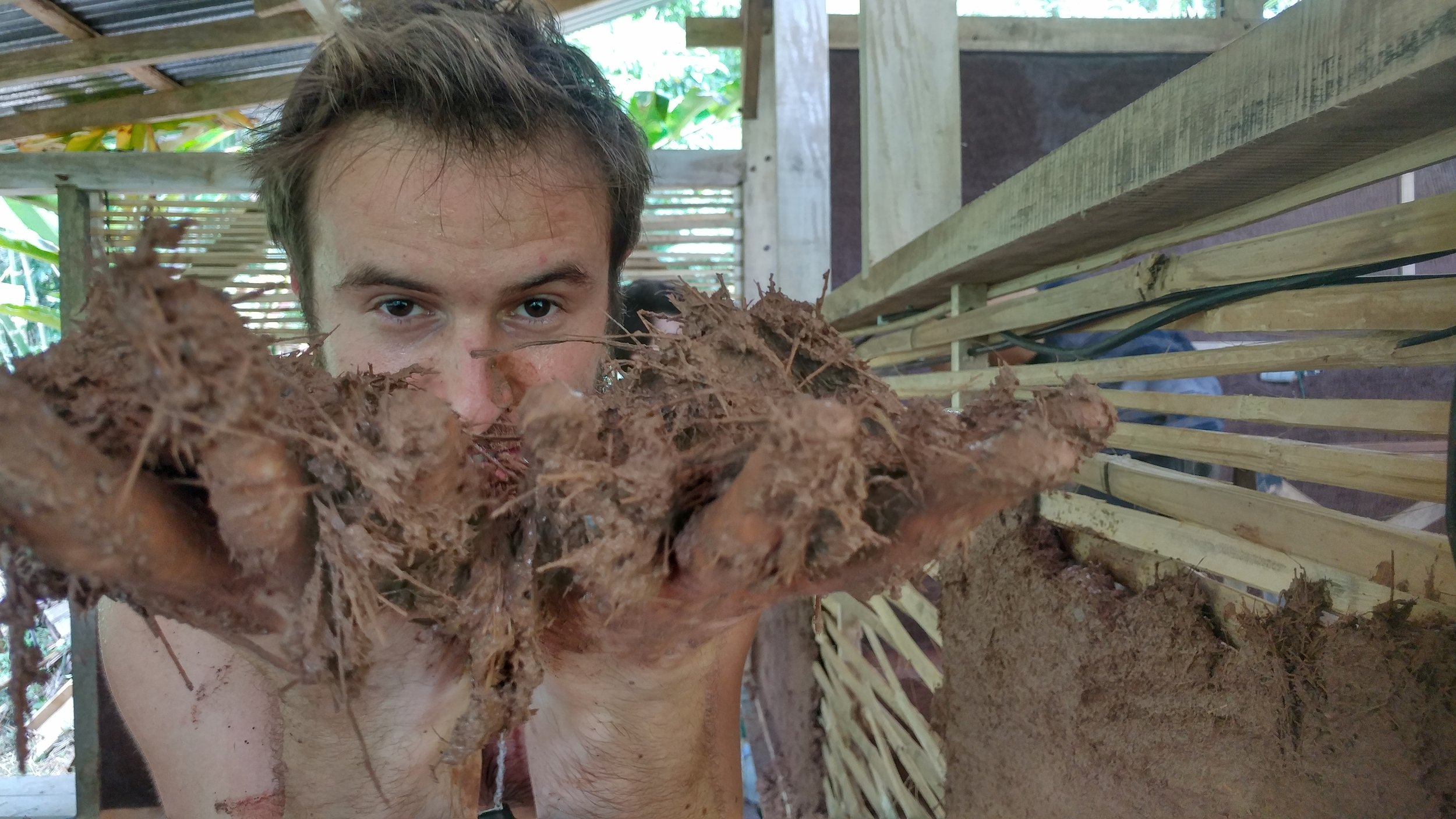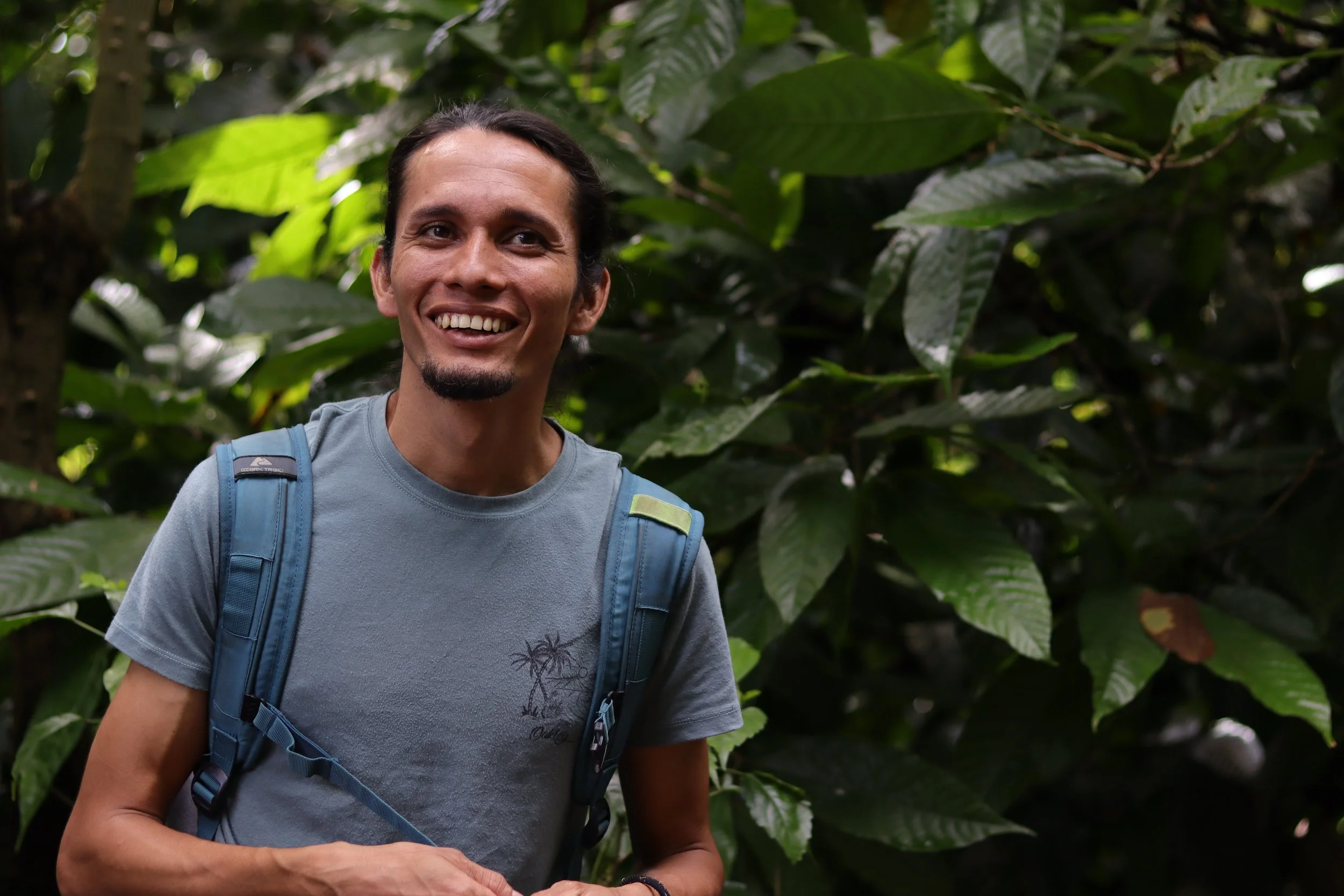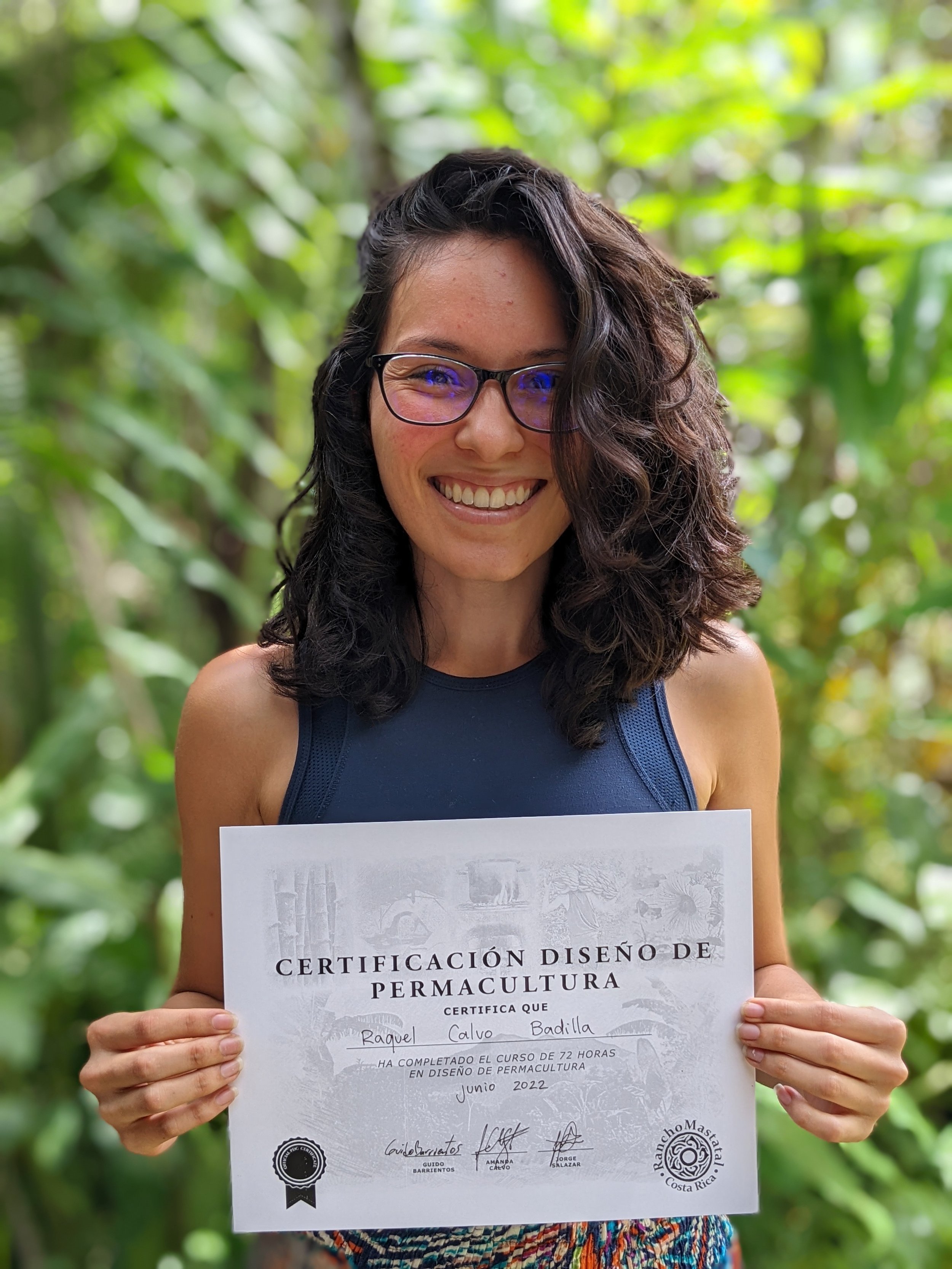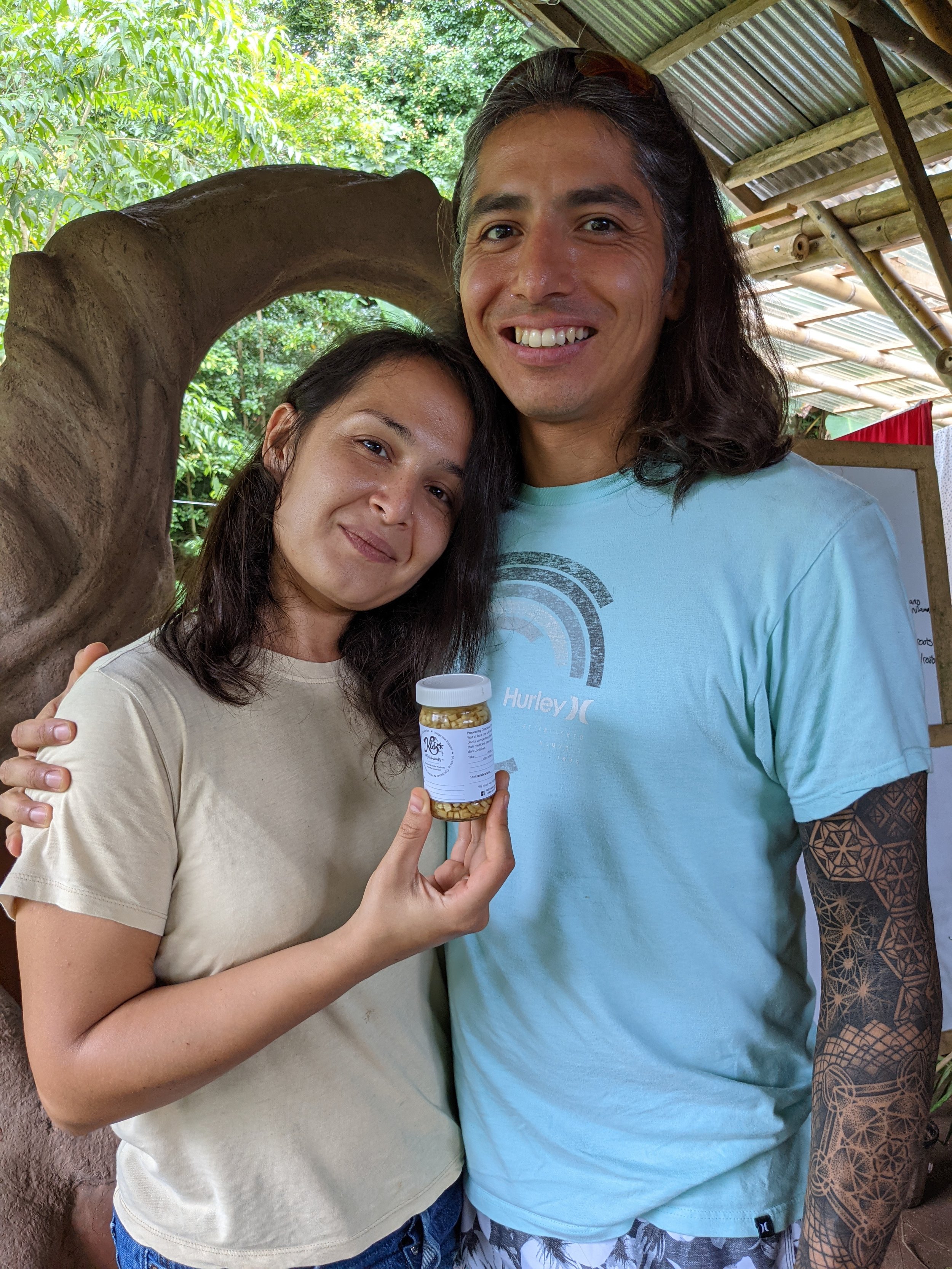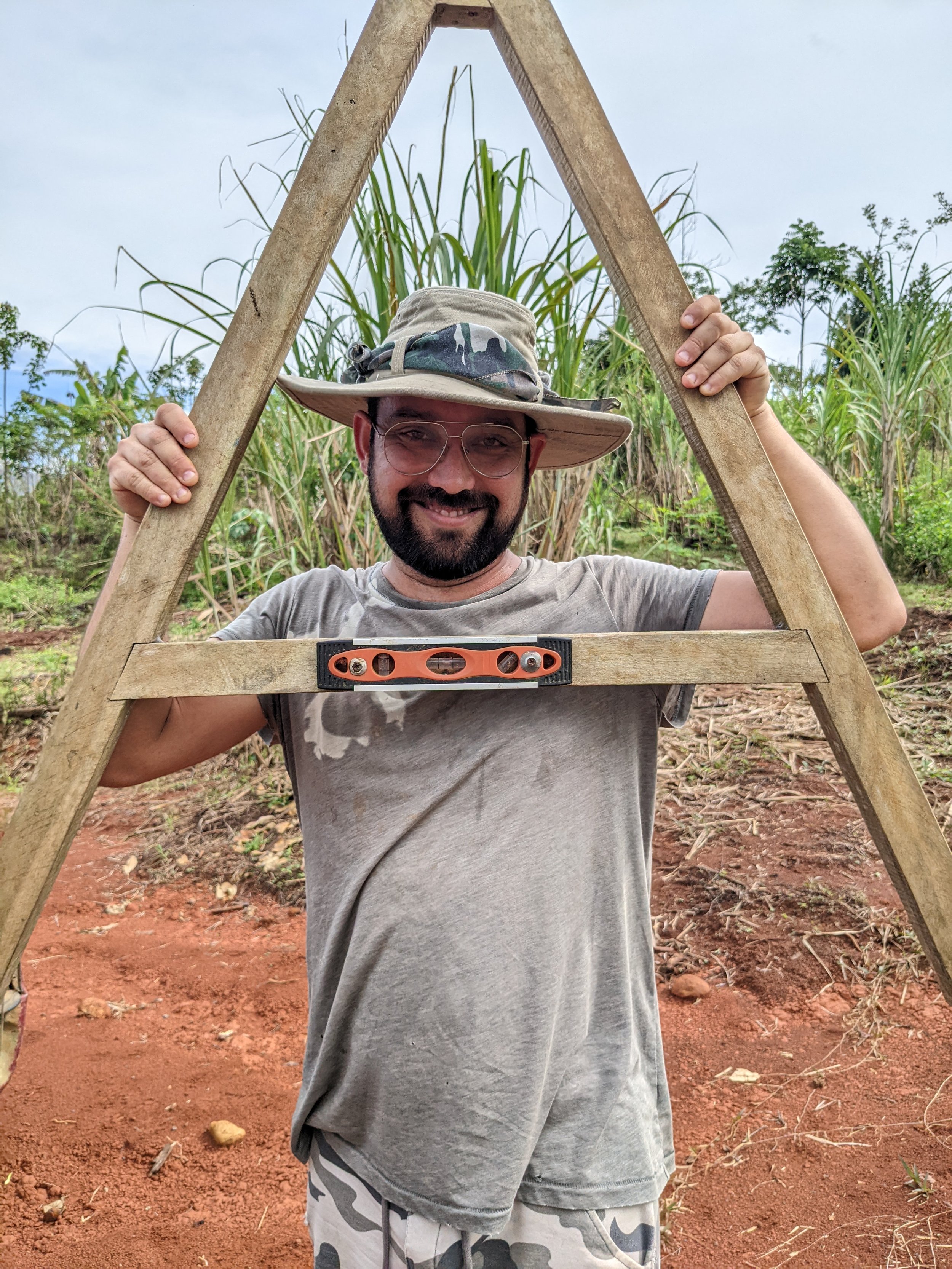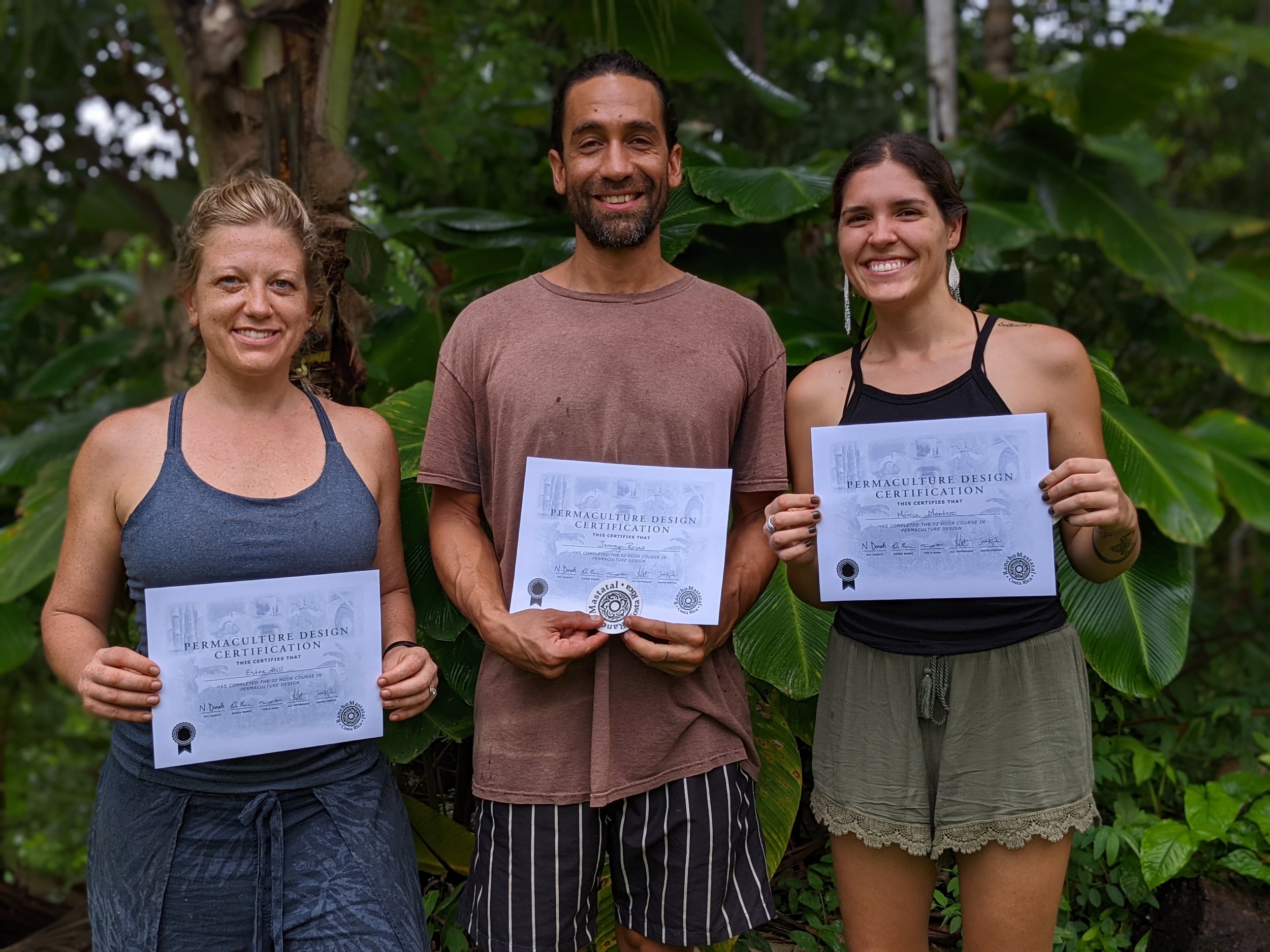Why You Should Take a Permaculture Design Certification course at Rancho Mastatal, Costa Rica
By core team member, Nic Donati
The Permaculture Design Certificate (PDC) is a 14 day fully immersive, hands on, inspirational workshop. This course introduces you to all the major areas that we work in at Rancho Mastatal. We provide context for where we live, outline the specific goals and objectives that we are trying to achieve, while displaying excellent examples of different designs and elements. Read more here about Why the World would be a Better Place if Everyone took a PDC. The PDC is a foundational course that provides you with an overview of the permaculture toolkit, which includes the methodologies, the principles and ethics of permaculture and the ways that one can apply them.
There are not many places in the world that offer such a diverse number of examples of applied permaculture principles and ethics in practice as you will find at Rancho Mastatal.
Bordering one of Costa Rica’s national parks, La Cangreja, we are surrounded by nature, biodiversity and abundance, providing the perfect learning environment for permaculture. One of the core themes in permaculture is to use natural ecological patterns as a template for the systems you design. It also provides an inspirational environment to immerse yourself in, as you can swim in the clear waters of our private waterfall, enjoy the natural surroundings and jungle life.
Rancho Mastatal was established in 2001, we have had lots of experience designing, implementing, evaluating and managing systems. This gives us the perfect platform to pass on this information to you and give you context as to why we have done certain things, why something’s didn’t work and others have been more successful. We have made plenty of mistakes over the years and we would love to share our experience with you of all of the success and failures so that you can accelerate your learning.
Rancho Mastatal is an established intentional community that manages the land using intelligent ecological design. We have over 200 acres of property that is at the disposal of students to explore during their time here.
We are one of the longest continually operating permaculture education centers in the world and not only do we provide a fantastic educational experience for all of our students we have always operated as a self-sustaining business. Apart from the initial seed money that was borrowed to purchase the land, all of the developments that have been made on the land have been funded through our own work, we do not rely on donors or wealthy benefactors and having slowly paid back the money borrowed to purchase the land. We are completely debt free and financially independent. We act as a model of developing a self-sustaining business, that uses permaculture ethics and principles to formulate our goals and objectives (read more about that here).
This is a really important element to us, through taking our workshops you support all of our work which includes community development, scholarship programs and all of the other ethical practices we employ in order to create a just and equitable system. You can learn a little more about our efforts by exploring our website and during our PDC.
In a practical sense you will also learn about many of the different systems we have implemented over the years and the systems that have proven to be the most resilient are still in use today. We will look at the design methodologies for deciding on our systems and then we will look at the detail of how these systems work and how you can effectively manage them.
A loaded jackfruit tree
Food Forests
We have a large diverse food forest on our property that incorporates hundreds of species of fruit and nut trees that we use for food, medicine, building materials, natural habitat, soil building, erosion control and so much more. Our food forest is designed to imitate our natural rainforest environment, using species that have evolved in our climate or similar ones. The food forest acts as a wonderful learning tool for students to walk through and see how you could create one yourself. We also have other examples of agroforestry systems, including alley cropping, riparian buffers and a syntropic site.
Organic Gardens
We have a small organic garden near our main house, where we have raised beds and many perennial food crops (read more: Tropical Agriculture Blogs) that we have collected from around the world, that provide an abundance of cooking green, salads and other delicacies. Our gardens are focused on growing crops appropriate to our harsh tropical climate and we don’t grow very many temperate climate annuals.
A beautiful jar of fermented veggies
Food and Fermentation
Food nourishes us and forms the heart of our community. Understanding where it comes from, how it is grown, and who has grown it helps us value our food in a way that we have lost in the modern era (read more: Eating Local: Reconnecting To Food). We will spend time talking about how we source our food, how we support local farmers, how we ferment foods for increased storage life and health benefits, and how we focus on developing a culinary experience that is based on local tropical foods rather than imported foods . We will have a hands on session to create delicious fermented treats that we will get to taste during your time at the Ranch. Read more: Farm to Table Blogs
Intentional community
The Ranch is not only a permanent intentional community for our core team members it also acts as year-long community for our apprentices. Each year we take on 5-7 apprentices to live with us. They learn about communal living, permaculture design, natural building and so much more, it is like a long Permaculture Design Certification! We have developed many structures in our community to help it function effectively and we will be sharing some of these strategies with you to help you on your journey. Things that we use and we will be teaching during the PDC, are Non Violent Communication (NVC), decision making protocols and systems, and our governance structure amongst other things. We will spend an entire day looking at how we can form communities in a general sense. These can be applied in many different areas not just intentional communities, but amongst friend groups, families and businesses. Read more: Communal Living Blogs
Water Management
We will look at the different water management strategies that we have in place on our land, to retain water in the landscape. Examples of systems we use are soil building techniques to increase moisture retention, swales to slow, spread and sink water, contour planting and dead barriers to slow the flow of water and prevent erosion amongst others. We will see how these systems work and practice their application.
Transforming “Waste” into Humaure
Waste Management
Our waste management strategies are diverse and numerous and showcase a number of different systems which can be used in any context. We have 11 composting toilets and one biodigestor that produces methane to cook with. These systems manage all of our human waste. We use several different greywater systems to manage shower, sink and laundry water including banana circles and a branched drain system. We compost all of our kitchen waste in a simple to understand composting system and use composting worms to create compost for the front gardens and make vermicompost teas. We also make our own dish soap and bar soap for use by everyone. We will do a practical soap making workshop during the class. On top of these systems, we make a concerted effort to reduce or simply not make waste (trash, single use plastics, etc…) by buying food in bulk and without packaging, making our own beverages in reusable bottles, fermenting in reusable vessels and more.
Soil Building & Fertility strategies
Soil building is essential for plant growth and moisture retention amongst other things (Read more: Improving Soils in the Humid Tropics). Our primary goal is to hold water in our soil and build the soils fertility. We are not blessed with deep top soils and the role of our soil building activities is crucial. We use many different Nitrogen Fixing Species on the property to help build and protect soil, often in combination with some of our water management strategies. We will look at our Mountain/Indigenous microorganism collection and the brewing and application of this system. We will also look at how we make compost and vermicompost tea and how we use some Korean Natural Farming techniques.
Natural Building
We have without doubt some of the best examples of natural building in the world on display, using bamboo, earth, timber framing, earthen floors, Tadelakt, polished lime and clay plasters, clay carving and sculpting, natural paints and so much more! We will also talk about design and walk around our extensive campus looking and talking about different techniques and get an opportunity to get our hands and feet dirty.
Appropriate technology
We have always strived to incorporate the “right” type of technologies into our repertoire. We are trying to develop tools that are genuinely going to improve productivity, rather than technology for the sake of it. We have wonderful examples of technologies that we think are accessible and simple for others to implement. Some of our favorites include the efficient wood burning stoves for cooking, solar dehydrators, earthen pizza oven, composting toilets, biodigestors, solar hot water, composting tubes for slow cooking, wonderbags/hayboxes for keeping food warm and many more. We will have a session about appropriate technologies (read more: Appropriate Technology Blogs) and renewable energy during our PDC. If there are specific things you are interested in make sure to ask us as we have experimented with many different technologies over the years.
Jorge Salazar - PDC instructor
Community support & inclusion
We have always endeavored to support our community as best we can and over the years we have been involved in many community projects. We have helped raise money to build a community library, build many additions to the primary school and high school, work on the community center, cemetery, church and football field. We have run classes in the primary school and high school in art, music and English to supplement the work of the underfunded rural schools. More recently we have been focusing our work on developing scholarship funds for our workshops and developing Spanish workshops with very accessible prices for the local people of Costa Rica and Central America. We have also been incredibly lucky that some of the community leaders have also begun to develop business that we can actively support; we work a lot of the Iguana Chocolate, Finca Siempre Verde and KIS botanicals who provide fantastic local guiding, tour and workshop services for guests and workshop participants. We have endeavored to include these local leaders in our permaculture design course, including family from La Iguana Chocolate and the founders of KIS botanicals to teach several modules in our Permaculture Design Certification.
Why Us?
We believe that we have developed not only a fantastic and inclusive permaculture course, but that it is based on our many years of experience living on the land. The Ranch is unique in its breadth of different permaculture systems that take many years to cultivate.
By joining us for our Permaculture Design Certification course you will not only be learning about the systems that we have in place and the methodologies of design, but also about how to successfully run a business based on permaculture ethics and about a project firmly embedded in the local community.
We hope to have you join us for one of our two yearly Permaculture Design Courses. Stay tuned to our workshop calendar for dates!
